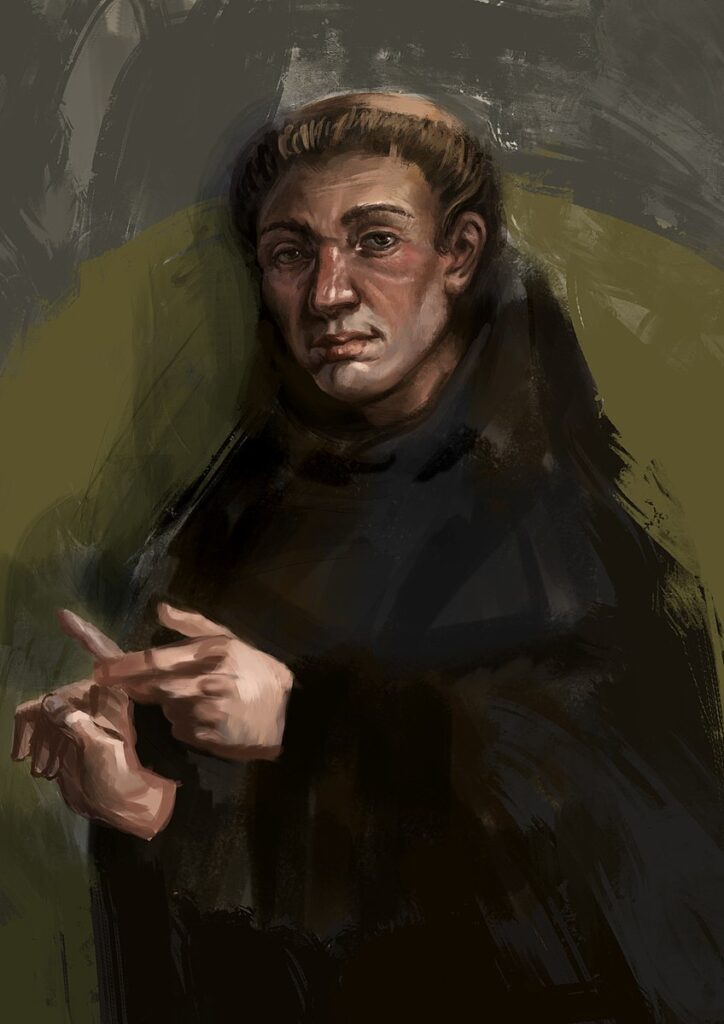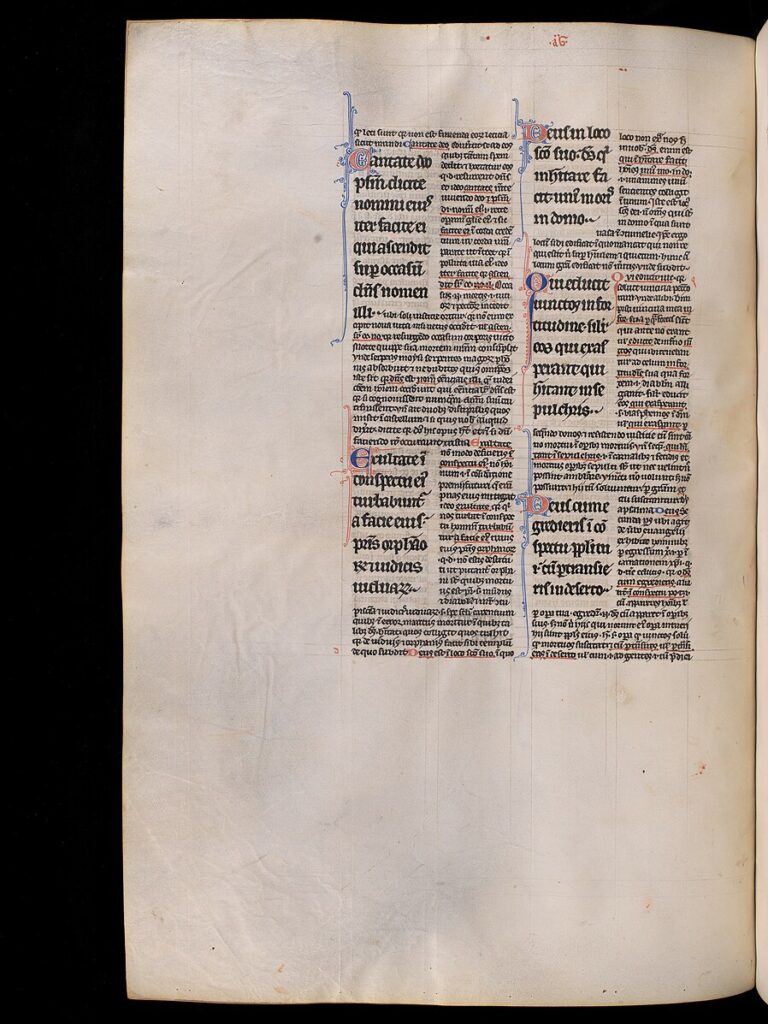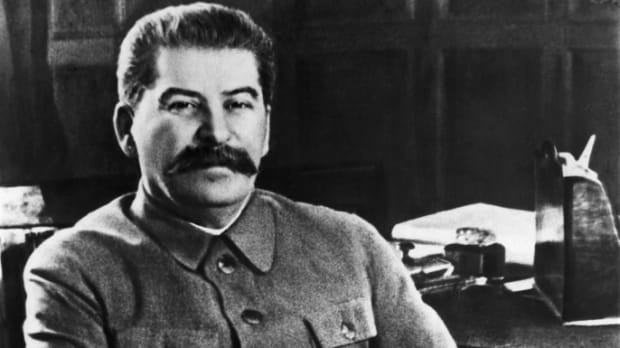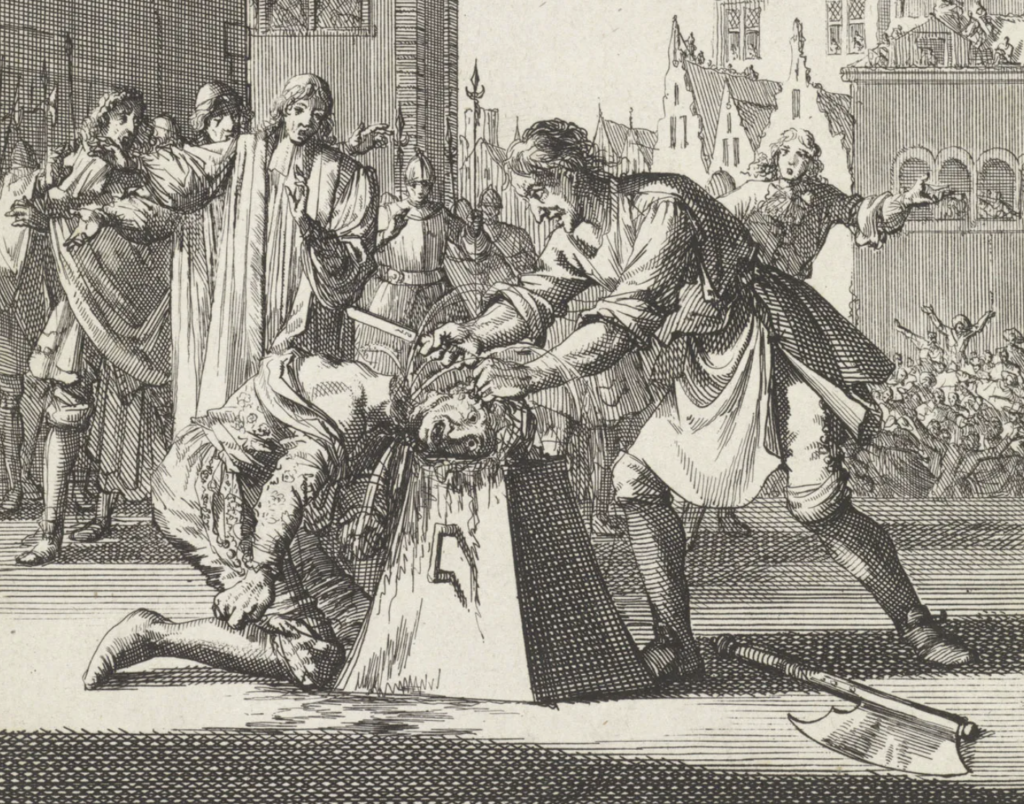In the world of academia, there is a principle called “Occam’s Razor” (also referred to as the “Principle/Law of Parsimony”). It is the philosophy that when presented with competing hypotheses about the same prediction, one should always choose the one that requires the fewest assumptions.
(This is not meant to be a method of choosing between hypotheses that make different predictions.)
In science, “Occam’s Razor” is used as a form of “abductive logic” in the development of theoretical models (rather than a strict mediator between contending models). It seeks the simplest and most likely conclusion from a set of observations.
It seeks a conclusion that is plausible (“best available” or “most likely”), but does not definitively affirm it.
It is attributed to William of Ockham. He was a 14th-century English philosopher and theologian. The principle is sometimes (inaccurately) simplified as, “The simplest explanation is usually the best one.”
In reality, Ockham himself did not state this principle verbatim. But he stated it in various other ways including “Entities are not to be multiplied without necessity”). It only became associated with Ockham centuries after his death in 1347.
Nearly three hundred years would pass before Irish Franciscan philosopher John Punch would formally credit the Law of Parsimony to Ockham. This was in his 1639 commentary on the works of John Duns Scotus.
Scotus was a Scottish Catholic priest and Franciscan friar. He was considered one of the four most significant Christian philosopher-theologians of Western Europe in the High Middle Ages (CE 1000 to 1350).
But who was William of Ockham?

Early Years
William of Ockham was born in Ockham, in the borough of Guildford, in Surrey, England, in 1287. (His parentage is unknown.)
He was apparently an unremarkable child from an unremarkable family. Little is known of William of Ockham’s childhood other than that he entered the Franciscan order at a very early age.
This was one of several related Christian groups within the Catholic Church. This one was founded in 1209 by the Italian saint, Francis of Assisi.
Monastic Life
William of Ockham received his elementary education in the London House of the Greyfriars monastery. This was a complex of buildings comprising the domestic quarters and workshops of a number of monks who lived in relative isolation.
It is generally believed that he then studied theology at the University of Oxford from 1309 to 1321.
Records indicate that William of Ockham completed all the requirements for a master’s degree in theology. However, for some unknown reason, he was never awarded his degree allowing him to teach.
Even so, he acquired the honorific title “Venerabilis Inceptor” (meaning, “Venerable Beginner”). He was formally admitted to the ranks of teachers by the University of Oxford Board of Advisors.
A Charge of Heresy
During the Middle Ages (from the late 5th to late 15th centuries), a treatise written by theologian Peter Lombard called Sentences. It was the standard, accepted authority on theology.
As a matter of tradition, many ambitious theological scholars wrote commentaries on it. Some of these included Thomas Aquinas, Bonaventure, Petrus Aureolus, Robert Holcot, and Duns Scotus. Known even then as a scholastic thinker, William of Ockham decided to add his name to this auspicious list.

His paper, however, was not well received by his colleagues or by Church authorities. It challenged Pope John XXII and the Holy Catholic Church. As a result, in 1324, William of Ockham was ordered to Avignon, France, to defend his paper before a papal court.
When William of Ockham reached Avignon, however, he discovered that the theological commission in session to review his Commentary on the Sentences wanted to include him in a debate regarding Apostolic poverty.
The Franciscans believed that Jesus and his apostles owned no property (either individually or shared). They believed that the “Rule of Saint Francis” commanded members of the order to follow suit; to take a vow of poverty.
This, however, brought them into direct conflict with Pope John XXII, who centralized all power and income in the Church. He lived a decidedly lavish life in Avignon.
In 1327, University of Oxford chancellor John Lutterell (and five other theologians) questioned William of Ockham about his treatise. William posited that the primary importance of God is to determine the “gratuitous salvation of men.”
He also claimed that God’s saving action consists of giving without obligation. And that it is “already profusely demonstrated in the creation of Nature.”
According to Catholic beliefs, the “gratuitous salvation of men” refers to a “free gift conferred on particular persons for the salvation of others,” or “grace freely given.” It is independent of the personal moral life or behavior of its possessor.
These include such gifts as charismata (prophecy, evoking miracles, speaking in tongues). Also, the priestly power of consecration (the act of transforming a thing from common to sacred use). Absolution (a pronouncement of forgiveness of sins in the name of God). And the hierarchical power of jurisdiction (church governance in which ordained bishops wield primary authority.)
The esteemed panel, however, found William of Ockham’s reasoning difficult to follow. Unable to justify formal condemnation, they instead restricted him to Avignon. They essentially put him under house arrest.
Religion and Politics
In May of 1328, William of Ockham, Italian Franciscan Minister Michael of Cesena, and a number of other leading Franciscans fled Avignon. They eventually took refuge in the court of the Holy Roman Emperor Louis IV of Bavaria.
This region was also enmeshed in a dispute with Pope John XXII. Emperor Louis IV became William’s defender.
In return for protection and patronage, William of Ockham wrote treatises arguing for Emperor Louis’ supreme control over Church and State in the Holy Roman Empire. In reaction, on June 6, 1328, William was officially excommunicated by the Holy Roman Church (ostensibly).
Another reason included leaving Avignon without permission.
William countered that Pope John XXII was a heretic for attacking the Doctrine of Apostolic Poverty (and by association, the Rule of Saint Francis). This was something that all previous popes endorsed.
Though William of Ockham’s theological perspective was never “officially” condemned as heretical, his excommunication (censure) prevented him from participating in certain Church activities until he repented. Which he never did.
On the Subject of “Nominalism”
The perspective that eluded Church authorities when examining William of Ockham’s treatise was fundamentally based in what is now termed, “nominalism.”
In the field of metaphysics, “nominalism” denies the existence of metaphysical universals. It believes that abstract objects do not actually exist beyond their names or labels.
This belief opposes, for example, so-called realist philosophies such as Plato’s “Platonic Realism.” This asserts that universals do exist over and beyond the particulars.
In the field of philosophy, “nominalism” denies the existence of universals on the grounds that the use of a general word (“humanity,” for example) does not connote the existence of the general thing named by that term.
Nominalism asserts that there must be some similarity between the particular things to which the general word is applied.
In his understanding of the deeper aspects of religion, spirituality, and being, William of Ockham emphatically denied metaphysical universals. He emphasized reducing one’s ontology (the philosophy/science of being) to a bare minimum.
This would reduce the number of ontological categories. This is, apparently, the perspective William applied to the tenets of the Church, religion, and seemingly, everything in his life.
But how does this apply to his famous philosophy?
“Nominalism” and “Occam’s Razor” in Modern Times
William of Ockham’s version of “nominalism” is generally viewed as having derived from a common perspective. The underlying concern for “ontological parsimony,” particularly regarding the likelihood of different scientific theories being true, the existence of certain particles, and the existence of supernatural entities.
This is summed up in his “Razor” and often expressed as: “Don’t multiply entities beyond necessity.”
In modern times, “Occam’s Razor” is the accepted approach to all research philosophy. It is particularly important to the study of human behavior in the realm of psychology.
This approach is grounded in three primary questions: “What is the nature of reality?” “What can be accepted as knowledge?” and “Which realities are beyond necessary to include in a given context?” But the larger question remains, “By what standard or body of beliefs can one answer these questions?”
As William of Ockham was scornfully aware, human beings can never know with certainty what is and is not “beyond necessity to include.” This is because necessities are not always clear to us.
His rule of thumb is, “One must never deny entities commonly assumed to exist, nor feel compelled to posit entities in the absence of known compelling reasons for doing so.”
It should be noted, however, that for William, the only truly “necessary entity” is God. Everything else, the whole of creation, is solely contingent on that reality.
In his words, “ . . . nothing ought to be posited without a reason given, unless it is self-evident (literally, known through itself) or known by experience or proved by the authority of Sacred Scripture.”
Legacy: Beyond His Famous Principal
There is no overstating the importance of William of Ockham’s contribution to modern science and intellectual thinking. The application of his “Razor” to Natural Philosophy, Theory of Knowledge, Political Theory, and Logic is immeasurable.
According to the principle of ontological parsimony as it applies to Natural Philosophy, William of Ockham held that we do not need to allow entities in the category of quantity, as the mathematical entities are not “real.”
As if anticipating modern scientific thought, William asserted that mathematics must instead be applied to other categories such as “substance” or “qualities.”
Regarding the Theory of Knowledge, William rejected the commonly accepted theory of species as unnecessary and not supported by experience. He favored instead the theory of “abstraction.”
He distinguished between intuitive and abstract cognition. Intuitive cognition depends on the existence or non-existence of the object, whereas abstractive cognition “abstracts” the object from the existence assertion.
As to Political Theory, William of Ockham was one of the first medieval authors to advocate a form of separation of Church and State. He was important to the early development of the notion of individual property rights.
His views on Political Theory are today recognized as an important contributor to the development of Western constitutional ideas. Especially those of a government with limited responsibility and power.
In terms of the study of Logic, William described in words the formula that would later be called “De Morgan’s Law” (an advanced rule of mathematics better known as “Boolean” algebra).
This is the law that gives the relation between union, intersection, and complements in set theory. This formula was about five centuries ahead of the exploration of this area of mathematics.
Additionally, William of Ockham’s contributions to semantics (especially to the theory of supposition) are still studied by logicians today. William is credited with being the first logician to treat “empty terms” in Aristotelian syllogistic effectively.
He devised semantics that precisely fit the logical argument. He stated, “An argument is valid if and only if it is valid according to Prior Analytics” (a text on reasoning written by Aristotle around 350 BCE).
References
Britannica.com., “William of Ockham,” William of Ockham | English Philosopher & Scholastic Theologian | Britannica. https://www.britannica.com/biography/William-of-Ockham
catholicculture.org., Catholic Dictionary: “GRATUITOUS GRACE,” https://www.catholicculture.org/culture/library/dictionary/index.cfm?id=33805
plato.stanford.edu., “William of Ockham,” https://plato.stanford.edu/entries/ockham/
research-methodology.net., “Ontology,” https://research-methodology.net/research-philosophy/ontology/

